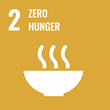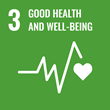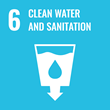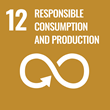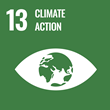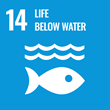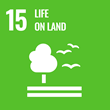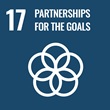
Project information
Sustainable Plant Protection Transition: A Global Health Approach
(SPRINT)

- Project Identification
- 862568
- Project Period
- 9/2020 - 8/2025
- Investor / Pogramme / Project type
-
European Union
- Horizon 2020
- Food security, sustainable agriculture and forestry, marine and maritime and inland water research (Societal Challenges)
- MU Faculty or unit
-
Faculty of Science
- prof. RNDr. Jakub Hofman, Ph.D.
- Paula da Silva Tourinho
- Mgr. Zuzana Hochmanová, Ph.D.
- Evgenia Chaideftou
- Mgr. Halyna Korovecka, Ph.D.
- Artur Radomyski
- Shiva Sabzevari
- Cooperating Organization
-
University of Ljubljana
University of Aveiro
University of Antwerpen
Aarhus Universitet
University College Cork
Universität Bern
Radboud Universiteit Nijmegen
Universiteit Utrecht
Wageningen University
- Responsible person Prof. Violette Geissen
Ecologic Institute
Technical University of Denmark
Université de Bordeaux
University of Hohenheim
Stichting Radboud universitair medisch centrum
SPRINT will develop, test, validate and deliver a holistic global health approach to integrated assessments of the impacts of plant protection products (PPP) on ecosystem, plant, animal and human (EPAH) health, using three main attributes for state of health: resilience, reproduction/ productivity and manifestation of diseases. SPRINT takes the main crops and cropping systems in different European landscapes into account with the aim being to develop transition pathways for reduced reliance on PPP use, and improve farmer and citizen awareness. The goal is integrated risk assessment at the local, regional, national and European level, focusing on different PPP use patterns in contrasting farming systems (conventional, integrated, organic). SPRINT consists of 9 interlinked work packages. The distribution and the impacts of PPPs on EPAH health will be evaluated at 11 case study sites (CSS), each with contrasting farming systems. Ten CSS cover Europe and leading European crops, and one additional study is in Argentina on soy production for feed. PPP environmental fluxes, direct (food/feed ingestion) and indirect (air/dust inhalation and dermal uptake) animal and human exposure routes will be measured and used to improve current exposure, fate and toxicokinetic models (e.g. EFSA-FOCUS, BROWSE, BREAM). Improved (eco)toxicological assays will be performed based on both the findings from the CCS and existing databases. Such assays will cover direct and indirect exposure to multiple PPP residues, realistic ranges of PPP concentrations, multi-species scenarios, and short- and long-term exposures. Modelling of sustainability and cost-benefit at micro- and macro-economic scale will be conducted to derive recommendations for sustainable transition pathways and a research agenda on PPPs. Stakeholders will be closely involved at all levels in the project, from the inventory phase at CSS to the cost-benefit analysis through an independently chaired project advisory group.
Sustainable Development Goals
Masaryk University is committed to the UN Sustainable Development Goals, which aim to improve the conditions and quality of life on our planet by 2030.
Publications
Total number of publications: 12
2024
-
Assessing pesticide residues occurrence and risks in water systems: A Pan-European and Argentina perspective
Water Research, year: 2024, volume: 254, edition: May 2024, DOI
-
Effects of MCPA and difenoconazole on glyphosate degradation and soil microorganisms☆
Environmental Pollution, year: 2024, volume: 362, edition: December 2024, DOI
-
Identifying pesticides of high concern for ecosystem, plant, animal, and human health: A comprehensive field study across Europe and Argentina
Science of the Total Environment, year: 2024, volume: 948, edition: October 2024, DOI
-
Pesticide residues in European sediments: A significant concern for the aquatic systems?
Environmental Research, year: 2024, volume: 261, edition: November 2024, DOI
-
Pesticide Residues in Organic and Conventional Agricultural Soils across Europe: Measured and Predicted Concentrations
ENVIRONMENTAL SCIENCE & TECHNOLOGY, year: 2024, volume: 58, edition: 15, DOI
-
Selected farm-level crop protection practices in Europe and Argentina: Opportunities for moving toward sustainable use of pesticides
Journal of Cleaner Production, year: 2024, volume: 477, edition: October 2024, DOI
-
Towards a comprehensive methodology for ecotoxicological assessment: Prioritizing plant protection products for mixture testing in edge-of-field surface waterbodies
Science of The Total Environment, year: 2024, volume: 956, edition: December, DOI
2023
-
Occurrence of pesticide residues in indoor dust of farmworker households across Europe and Argentina
Science of the Total Environment, year: 2023, volume: 905, edition: December 2023, DOI
-
Pesticide residues with hazard classifications relevant to non-target species including humans are omnipresent in the environment and farmer residences
Environment International, year: 2023, volume: 181, edition: November 2023, DOI
2022
-
A worldwide review of currently used pesticides' monitoring in agricultural soils
Science of the Total Environment, year: 2022, volume: 812, edition: March 2022, DOI


